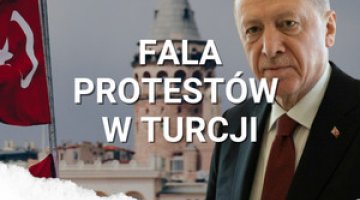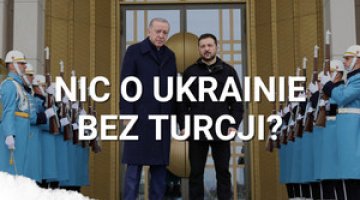Russia’s game with the West: Moscow withdraws from the grain deal
On 17 July, Kremlin spokesman Dmitri Peskov announced that the Russian Federation had withdrawn from the Black Sea Grain Initiative; on the same day, the Russian foreign ministry also conveyed this decision to Turkey, Ukraine and the UN Secretariat. By refusing to extend the agreement, Russia revoked its security guarantees for the transit of ships carrying Ukrainian food from three ports on the Black Sea through the so-called safe corridor.
Commenting on the Russian decision to withdraw from the Black Sea Grain Initiative, Peskov made the resumption of the agreement conditional on the West meeting Russia’s demands. These include the reconnection of the state-owned Rosselkhozbank (which services the Russian agricultural sector) to the SWIFT international banking system, the exemption of imports of specific categories of dual-use goods from Western sanctions (according to the Russian side, this applies to spare parts and agricultural equipment), and the resumption of Russian ammonia exports via pipeline from Togliatti via the Odesa terminal.
In making its case, the Russian government has highlighted the contents of a memorandum that the Russian Federation and the UN signed last year, in which the UN Secretariat pledged to work towards facilitating the export of Russian grain and mineral fertilisers. In a statement published on 17 July, the Russian foreign ministry stressed that the Russian side expects ‘concrete results’ in fulfilling the demands it has made, rather than just more promises. Russian President Vladimir Putin has already insisted that these demands must be met, while accusing Western countries of pursuing a policy of hindering Russian agricultural exports.
Referring to the Russian decision to withdraw from the grain agreement, Turkish President Recep Tayyip Erdoğan emphasised the role that the corridor had played in averting a global food crisis. He also expressed his confidence that Russia would return to the agreement and that the temporary deadlock would be resolved. He announced that he would hold talks with Putin about the corridor after he returns from a three-day visit to the Gulf states (20 July), and that the issue of facilitating the shipments of Russian grain and fertilisers would be on the agenda. Without giving a date, he also said that consultations between Turkish foreign minister Hakan Fidan and his Russian counterpart Sergei Lavrov on ending the impasse are expected to take place soon. Moreover, Erdoğan confirmed Putin’s upcoming visit to Turkey, which is scheduled for August.
In response to Russia’s withdrawal from the Black Sea Grain Initiative, President Volodymyr Zelensky announced that Ukraine was ready to continue its participation without Russia. He also said that he had already sent official letters with such a proposal to the UN and Turkey. Back in early June, the Ukrainian minister of agrarian policy and food, Mykola Solski, announced that Ukraine had set up a special $547 million fund that would be used to insure ships which serve Ukraine’s Black Sea ports in the event of Russia’s withdrawal from the agreement.
Commentary
- Russia’s refusal to extend the grain agreement is an attempt to destabilise the global agricultural market and drive up prices, which would mean higher revenues for Russia from its food and agricultural exports. After the Kremlin announced this decision, the market reacted by raising prices: wheat futures on the Chicago exchange rose by around 4%. Sales of Russian grain and fertilisers benefit both the Kremlin and members of the Putin elite. Contrary to the claims by Russian propaganda that the West was blocking exports during the period from 1 July 2022 to 30 June 2023, the volume of Russian grain sold abroad rose significantly, to around 60 million tonnes (that is, by almost 30% y/y); the country’s abundant harvest also contributed to the rise. These factors, coupled with high prices on the global markets, helped raise Russia’s revenue from its food and agricultural exports to more than $40 billion in 2022, up 16% from the previous year (see ‘Russia is weaponising food’).
- Russia’s decision to withdraw from the grain agreement and its accompanying demands are aimed at testing the unity of the West in the context of its sanctions policy to date. Russia’s lack of goodwill is illustrated by its rejection of a compromise proposal that was put forward by the UN Secretary General who, according to media reports, suggested reconnecting a subsidiary of Rosselkhozbank to the SWIFT system. As regards the demand to resume ammonia shipments, this is currently impossible because the pipeline remains depressurised as a result of the hostilities. By opting not to extend the grain agreement, Russia is also hoping to exacerbate the problems within the EU related to the transit of Ukrainian grain by land, in the belief that this will force the West to adopt a less assertive stance.
- At this stage, the Kremlin will interpret any decision to meet its demands as a success, which will encourage it to press on with its policy of economic blackmail. However, if Russia’s unilateral termination of the agreement leads to a prolonged diplomatic stalemate, Moscow could conceivably find itself at odds with its partners from the Global South, particularly the African countries for whom the initiative was originally designed for, as well as Turkey and China. It is worth noting that Russia’s annulment of the agreement does not prevent Ukrainian food from being exported, but it does increase the insurance costs for shipowners due to the ongoing hostilities in the Black Sea. If the Russian navy moves to deliberately block civilian ship traffic, the recipients of Ukraine’s agricultural commodities could interpret this as an assault on their interests and a step aimed at undermining global food security. In this context, we should remember that China’s blueprint for settling the Russian-Ukrainian conflict also includes a reference to the need for the continued exports of Ukrainian grain by sea.
- Russia’s withdrawal from the grain agreement is also a major test for Turkish diplomacy. Turkey is certain to try and resolve the political crisis as soon as possible, and to secure Russia’s agreement to extend the deal. This is because the grain initiative is both a lucrative source of revenue for Turkey and a part of its efforts to build up the country’s international prestige. In the search for a compromise, Turkey is very likely (at least in part) to support Moscow’s position, that is, Russia’s demands must be met in order for it to return to the grain agreement again. However, we should not expect the political impasse to be resolved before Erdoğan returns to his country. Nor has there been any indication so far that Turkey could involve itself in the operation of the grain corridor by committing its own armed forces, as this could potentially lead to an escalation in the Black Sea, which is not in Ankara’s interest. We can expect Turkish diplomacy to become significantly more active over the next few days in an effort to persuade Russia to return to the grain agreement.
- The grain corridor is a very important export route for Ukrainian food: from the beginning of its operation in August last year until mid-July this year, 32.9 million tonnes of goods were exported via this route. It is worth mentioning that contrary to the corridor’s common name, it is not only grain that has been exported from Ukraine’s Black Sea ports (although corn has accounted for 58% of the goods transported, and wheat for 27%), but also oils and oilseeds. Until March this year, the corridor had been functioning quite smoothly: an average of more than 3 million tonnes of food was shipped from the ports each month (see Chart 1). Since April, however, due to obstruction from the Russian members of the committee that inspects ships, the volumes of food exports have been falling, and in May the port of Pivdennyi (one of the three included in the initiative) was de facto blockaded.
- The suspension of the Black Sea Grain Initiative will have decidedly negative consequences for Ukrainian food and agricultural exports. The corridor accounted for more than half of Ukrainian food sales abroad in the first quarter of this year, and still played a very important role in the second quarter despite the problems caused by Russia (see Chart 2). Although the capacity of Ukrainian ports on the Danube continues to rise (from 56,000 tonnes in March last year to nearly 2 million tonnes in June this year), they are unable to take over all the volumes that are shipped from the Black Sea ports. Ukraine’s situation is further complicated by the ban on the sale of some cereals and oilseeds to the neighbouring European Union countries and Bulgaria, which will remain in force until 15 September. It should be noted here that the harvest is now beginning, and pressure to export grain from the country by any means possible – including across the land border with the EU – will again increase over the coming months. At the moment, it is difficult to say whether Ukraine’s offer to insure vessels will persuade shipowners to take the risk and export food from its ports without Russian guarantees. In 2022, despite the ongoing war, Ukraine’s agricultural exports totalled $23.4 billion, which accounted for more than half of the country’s total foreign sales; in H1 2023, the figure was $11.7 billion (60.6% of total exports).
Chart 1. The use of the grain corridor (to 15 July this year) by port

Source: Humanitarian Data Exchange.
Chart 2. The importance of the grain corridor for Ukrainian agricultural exports (to 15 July this year)

Source: the Ministry of Agrarian Policy and Food of Ukraine, Humanitarian Data Exchange.




